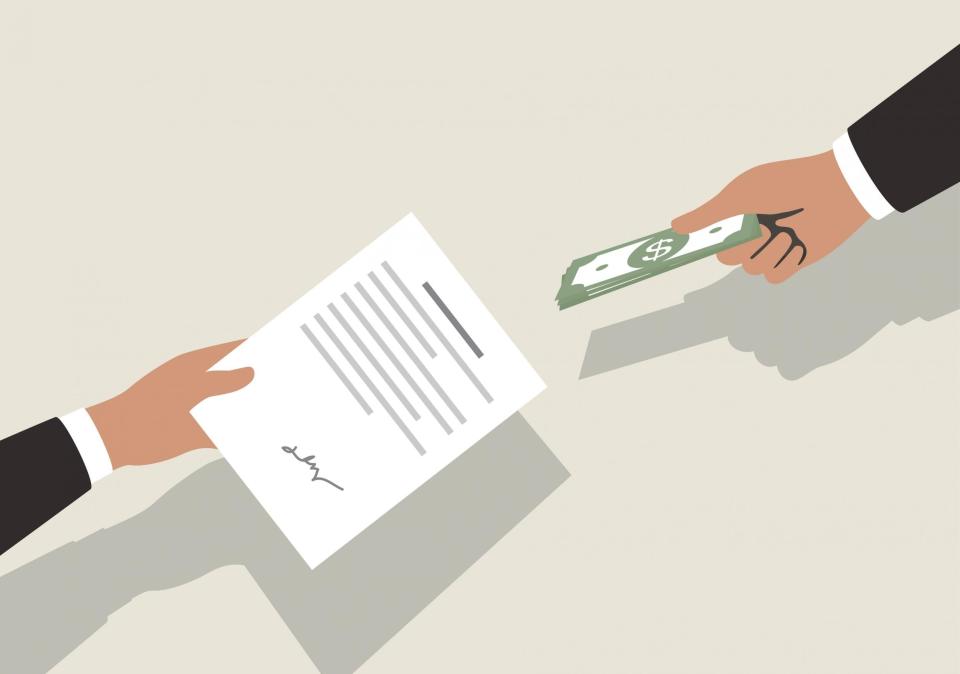Act now on borrowing to protect yourself from the next financial storm

The all-consuming nature of the Covid-19 crisis has swept everything else off the agenda for most of 2020.
But with some semblance of normality now returning, the odd sense of a life and nation in stasis has fallen away. As the cash injections fade and empathy marketing begins to date badly, all those other things we were worried about are swimming back into focus.
And Brexit is top of the pile. As we lurch from one economic crisis into yet more uncertainty, and the government decides it has to spend £93m to tell us things have changed, we have a unique window to get our borrowing in order before the next wave of turbulence comes barrelling into the economy, the jobs market and our personal lives and finance.
This may all seem a bit relentless. We’re only just coming to terms with the greatest socio-economic upheaval of our lives to date after all.
There’s no question that thousands of Britons are facing severe, ongoing hardship as a direct result of the pandemic.
But this has been an experience of two halves and millions more have been not only held up by emergency funding life rafts, but have thrived on them.
Add in a huge cut in spending and a fear of the unknown, and it comes as little surprise that Brits have saved £157bn during lockdown as well as paying off almost £16bn in personal debt, according to data from investment platform AJ Bell.
More than 70 per cent of households report saving money during lockdown. If we could maintain our lockdown spending habits we could each save almost £8,640 by the end of the year, an average of more than £220 a week, financial comparison site money.co.uk suggests.
Despite the rising tide of job losses, it seems we might, possibly, survive this one, thanks in no small part to some brave, massive and rapid decision-making by a team headed up by a chancellor nobody had ever heard of six months ago.
But just as a tsunami delivers multiple pounding blows to a shoreline, another wall of water could be on its way.
Whichever side you were on in the now ancient piece of history that was the Brexit vote, nobody disputes the fact that there will be economic implications of our exit from Europe.
They will filter down to our individual circumstances – either through direct lines such as changes to the jobs market or indirectly via shifts in the cost of living, for example.
But while we have a second looming threat to an economy already reeling from Covid, the circumstances we find ourselves in now offer a remarkable series of opportunities.
The extraordinarily low base rate means that if you are borrowing money for the medium to long term on a mortgage or personal loan, the costs involved are particularly small right now.
After hitting record lows in June, both the two and five-year average fixed-rate mortgage have been reduced even further to 1.99 per cent and 2.25 per cent respectively, according to Moneyfacts.co.uk. This has been prompting homeowners to switch deals.
Around 800,000 homeowners are currently paying the standard variable rate on their mortgage – coming in at more than 4 per cent. With the average outstanding mortgage currently standing at £135,000, according to comparethemarket.com, switching now could save almost £2,500 a year in repayments.
But the number of mortgage products available to UK homeowners has plummeted over the course of the Covid crisis, with few signs of a return any time soon. And deals at this kind of rate are only available to those with manageable levels of debt in the first place – another reason to rein in the spending and pay down the debts as fast as possible, even if you don’t think a recession is on the way.
Those with a low deposit or equity will pay significantly more for their home loans, as lenders weigh up the value versus the risk of over-indebted customers in the current economic climate. The two-year fixed average rate at 90 per cent LTV is currently increasing by 0.60 percentage points to 2.90 per cent, and by 0.66 percentage points to 3.94 per cent at 95 per cent LTV in the last month alone.
There are other reasons too to get our personal debt in order. The huge hike in overdraft fees will mean, from this month, millions of people will start paying almost 40 per cent interest on their overdrafts after a three-month pandemic-related reprieve.
“It’s alarming to see that despite the initial three-month pardon, increased overdraft fees have been reintroduced at a time when many still are worried about future job security,” Anthony Morrow, CEO of digital financial advice service OpenMoney, says.
“Over the next few months, arguably more so than before, people are going to be fearful of job losses and worried about their personal finances.
“Not only is this a bad time to start reintroducing overdraft fees, without much warning for those who have been relying on this for household expenses, but the way the charges are being introduced isn’t clear.
“If you’re using your overdraft, we’d urge you to ensure you know all the detail about how and when your charges are changing. Try to focus your efforts on getting out of debt by pausing contributions to savings in the short term and do your best to pay off the most expensive debt first,” he adds, which is now likely to be your overdraft.

 Yahoo Finance
Yahoo Finance 